The role of the buyer is being shaken up, says Fiona McLelland
Although the core skills required - negotiation, NPD, sourcing and cost management - remain the same, good buyers must be able to adapt to a changing environment, says Stephen Staples, branch manager, retail head office appointments, at Daniel Williams Retail Consultants. “Now buyers are beginning to move towards category management and want to nurture long-term relationships.”
“A lot of retailers used to take a more aggressive and short-termist approach to achieving price point of product to the detriment of developing a good relationship with a supplier. They have realised you can only adopt this approach for so long before suppliers have had enough.”
The constantly changing nature of the food and drink industry means the role of the buyer is changing with it. On the one hand, a raft of tougher legislation from Brussels means buyers have to take into consideration more complex standards with issues such as traceability and labelling, while at home the type of products being sourced is being shaped by the health and obesity debate.
On the other hand, buyers are now far more involved in the direct sourcing of goods globally, instead of relying on agencies. So how is the role of buying changing. Is it making the job less attractive?
In his five years in retail recruitment, Tom Irwin, director of the retail division of Quest Recruitment, has watched the multiples successfully cast the net further in their search for a higher calibre of buyer.
“Competition for jobs is as high as it has ever been and retailers are willing to recruit from a much wider circle,” says Irwin. “Two or three years ago, it was a bit of a merry-go-round within the big four, but now they are willing to recruit people from different backgrounds with different skills sets.”
Rob Seery, senior consultant, food and drink at Nigel Wright Recruitment, worked as a food buyer at M&S for eight years. He left the company six months ago and now finds jobs for other buyers. He agrees the job has become more challenging and is no longer just about being a tough negotiator on price.
He says: “It used to be that buyers in the multiples would spend 80% of their time talking about price, but now that’s more like 40%. There’s a lot more to the job than just getting a deal. There is more focus on corporate responsibility; there’s legislation from Europe; and there’s a spotlight on health and obesity.”
The job is indeed attracting higher calibre applicants. “Instead of the GNVQ that could have got you the job in the past, the likes of Tesco and Sainsbury now demand a 2.1 business degree from good universities,” he says. Irwin notes that more top graduates are looking for retail jobs in preference to much-coveted roles at major fmcg companies, such as P&G and Unilever.
The increased complexity of the role has also encouraged some old-school buyers to move to new hunting grounds.
Seery notes increased interest in the independent c-store and wholesale sectors among the “real traders” - what he calls the hard-nosed buyers who get a buzz from clinching a deal, and little else.
And some are finding they can transfer their skills to the other side of the fence, he says. “Some of the most exciting parts of the buyer’s job, such as consumer research and analysing market trends, can now be found with suppliers. Suppliers now have to present market trends and have a solid proposition backed up by research to tell buyers why the product would appeal to the consumer.
“It used to be that suppliers wouldn’t take on someone who worked in buying because of the misconception that they couldn’t sell, but they now recognise their skills.
“If a supplier can use their knowledge about the consumer to convince a retailer that they have the product the shopper needs and wants, then it can only be to the supplier’s advantage.”
Although the core skills required - negotiation, NPD, sourcing and cost management - remain the same, good buyers must be able to adapt to a changing environment, says Stephen Staples, branch manager, retail head office appointments, at Daniel Williams Retail Consultants. “Now buyers are beginning to move towards category management and want to nurture long-term relationships.”
“A lot of retailers used to take a more aggressive and short-termist approach to achieving price point of product to the detriment of developing a good relationship with a supplier. They have realised you can only adopt this approach for so long before suppliers have had enough.”
The constantly changing nature of the food and drink industry means the role of the buyer is changing with it. On the one hand, a raft of tougher legislation from Brussels means buyers have to take into consideration more complex standards with issues such as traceability and labelling, while at home the type of products being sourced is being shaped by the health and obesity debate.
On the other hand, buyers are now far more involved in the direct sourcing of goods globally, instead of relying on agencies. So how is the role of buying changing. Is it making the job less attractive?
In his five years in retail recruitment, Tom Irwin, director of the retail division of Quest Recruitment, has watched the multiples successfully cast the net further in their search for a higher calibre of buyer.
“Competition for jobs is as high as it has ever been and retailers are willing to recruit from a much wider circle,” says Irwin. “Two or three years ago, it was a bit of a merry-go-round within the big four, but now they are willing to recruit people from different backgrounds with different skills sets.”
Rob Seery, senior consultant, food and drink at Nigel Wright Recruitment, worked as a food buyer at M&S for eight years. He left the company six months ago and now finds jobs for other buyers. He agrees the job has become more challenging and is no longer just about being a tough negotiator on price.
He says: “It used to be that buyers in the multiples would spend 80% of their time talking about price, but now that’s more like 40%. There’s a lot more to the job than just getting a deal. There is more focus on corporate responsibility; there’s legislation from Europe; and there’s a spotlight on health and obesity.”
The job is indeed attracting higher calibre applicants. “Instead of the GNVQ that could have got you the job in the past, the likes of Tesco and Sainsbury now demand a 2.1 business degree from good universities,” he says. Irwin notes that more top graduates are looking for retail jobs in preference to much-coveted roles at major fmcg companies, such as P&G and Unilever.
The increased complexity of the role has also encouraged some old-school buyers to move to new hunting grounds.
Seery notes increased interest in the independent c-store and wholesale sectors among the “real traders” - what he calls the hard-nosed buyers who get a buzz from clinching a deal, and little else.
And some are finding they can transfer their skills to the other side of the fence, he says. “Some of the most exciting parts of the buyer’s job, such as consumer research and analysing market trends, can now be found with suppliers. Suppliers now have to present market trends and have a solid proposition backed up by research to tell buyers why the product would appeal to the consumer.
“It used to be that suppliers wouldn’t take on someone who worked in buying because of the misconception that they couldn’t sell, but they now recognise their skills.
“If a supplier can use their knowledge about the consumer to convince a retailer that they have the product the shopper needs and wants, then it can only be to the supplier’s advantage.”








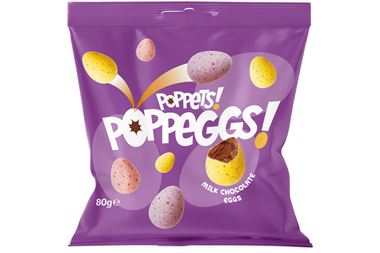
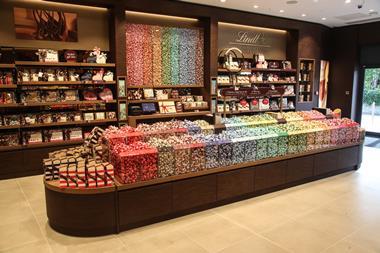

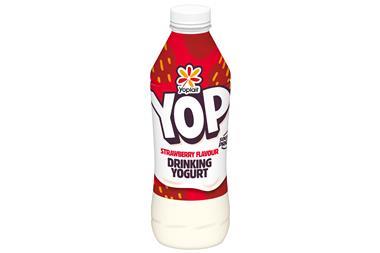
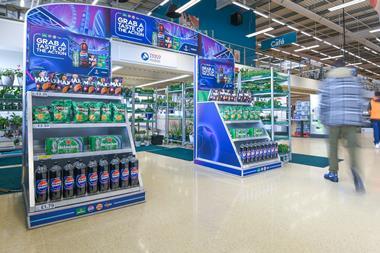
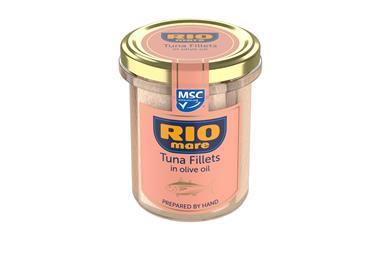
No comments yet